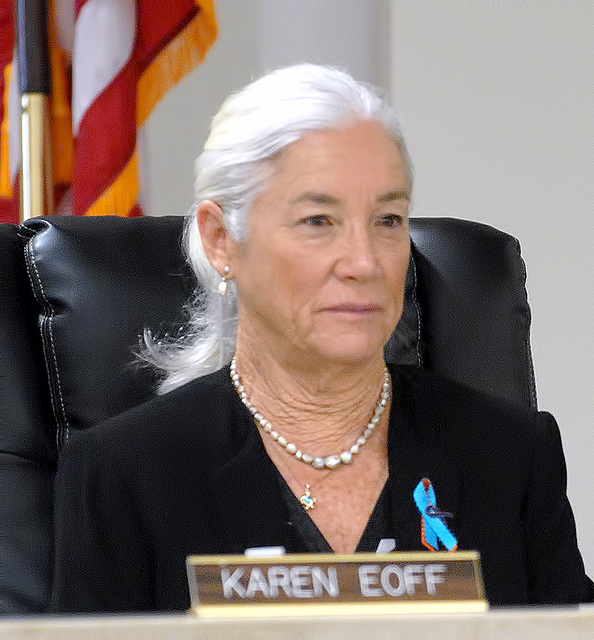The Hawaii County Council wants Congress to sponsor a constitutional amendment curbing the ability of corporations to pump unlimited money into elections. ADVERTISING The Hawaii County Council wants Congress to sponsor a constitutional amendment curbing the ability of corporations to
The Hawaii County Council wants Congress to sponsor a constitutional amendment curbing the ability of corporations to pump unlimited money into elections.
The council voted 6-3 to approve a nonbinding resolution by North Kona Councilwoman Karen Eoff asking the state’s congressional delegation to push the amendment in Washington. Eoff also wants the Hawaii State Association of Counties to include the measure in its priority package for the state Legislature.
“We need a way to keep our elections clean,” Eoff said.
The dissenters, Puna councilmen Greggor Ilagan and Dan Paleka and Hilo Councilman Aaron Chung, said they voted no because the resolution singles out corporations and doesn’t mention the super political action committees that some see as the real problem. Ilagan added he worries about unintended consequences.
“It vilifies corporations specifically,” Chung said, adding he thinks the voter sees through the negative advertising of corporations and super PACs. “I don’t think it gives credit to the people who are actually voting.”
Eoff and South Kona/Ka‘u Councilwoman Maile David argued that super PACs would be swept in under the umbrella of the amendment once it’s created in Congress.
“I’m supporting the intent of this and leaving it up to our congressional delegation to come up with appropriate language,” David said.
The 2014 election saw a record amount of money raised and spent by super PACs in Hawaii. More than $10.3 million was spent on ballot initiatives and $5.3 million on candidates.
Closer to home, a Honolulu super PAC dumped more than $100,000 into opposing Margaret Wille in the District 9 County Council race, eclipsing the approximately $35,000 the candidates each raised on their own.
Hawaii was the first state in the nation to call for a constitutional amendment clarifying the distinction between people and corporations following the Supreme Court’s landmark 2010 Citizens United v. Federal Election Commission 5-4 decision.
That resolution, sponsored by request by the late Rep. Bob Herkes, D-Ka‘u, was helpful, but it didn’t go far enough, said Marvin Feldman, Kona representative for Move to Amend, a coalition of more than 390,000 people supporting the change.
More than 600 resolutions have been passed by local governments across the country and 16 states have passed similar resolutions.
“It is essential that the will of the people be expressed by our government,” Feldman said.
University of Hawaii at Hilo sociology professor Noelie Rodrigues said she has 2,000 signed petitions in support of the measure.
“There’s a huge, huge inequality that’s growing and destroying the middle class,” Rodrigues said.
Dozens of people submitted written or oral testimony, all in favor of the measure.
“Voters are supposed to be at the center of our political process,” said Donna Oba, co-president of the League of Women Voters of Hawaii County.
“But unlimited expenditures from millionaires, corporations, unions and trade associations overwhelm citizens’ voices, lead to corruption and unfairly disrupt the election process,” she added. “In this current media-saturated society, well-funded special interest groups can buy a much bigger megaphone than a single person speaking at a public meeting.”
Or, as explained by Pahoa resident Toby Hazel, “otherwise you get run over by whoever has the most money.”
State Sen. Russell Ruderman, D-Puna, told council members the process of amending the U.S. Constitution to disallow unlimited money into campaign coffers will take a long time, and shouldn’t affect their careers directly.
“It should be easy to do the right thing here,” Ruderman said.
Email Nancy Cook Lauer at ncook-lauer@westhawaiitoday.com.



